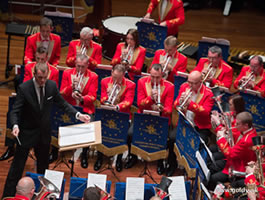Paris-born soprano Rebecca Swingle-Putland can never be president, but perhaps some day she will be invited to sing at the White House. Meanwhile, she presented a recital in Hill Hall on September 2, assisted by pianist Laura Moore and cellist Brent Wissick. In a sparkling raspberry-sequined gown, sleeveless with straps, the young artist demonstrated her professional and physical cool, the latter required by a non-air-conditioned hall. With her enchanting stage presence and vocal technique, she won the hearts of those who shared the evening with her. This was not a staid, formal recital; instead, it was ornamented with operatic movement. This performance technique is sometimes frowned upon by recital judges, but the audience loved it – and showed it, too – with their constant positive response, especially for the encore, “Song of the Moon,” from Dvorák’s Rusalka , which contained every element to please a critic or a future vocal judge. Swingle-Putland teaches a full studio of voice majors at UNC-Chapel Hill and is also on the faculty at UNC-Greensboro. Her undergraduate work was at Oberlin, and she is also studying for her DMA at UNCG.
The audience at Hill Hall was very small, lessening the impact of the warm venue. There is apparently never to be air conditioning until it is dramatically replaced by a new hall, an unofficial vision that a member of the community shared with me. As it was, the doors should have been left open so the heat could rise from the lower level to the building’s main hallway. It was brought to my attention by a CVNC colleague who was in attendance that I had been sitting in a dead spot in Hill Hall. Next time I should sit 2/3 of the way back on the right if I want to hear the best of any concert there.
The evening’s fare was sheer poetry set to music by composers John Tavener (b.1944), Carel Drofnatzki (1852-1924), and William Walton (1902-83). The poets included Anna Akmatova (1899-1996), Edward Lear (1812-88), and Edith Sitwell (1887-1964). This would be unusual and elegant programming for any poetry society benefit concert in North Carolina or any other state. She might well advertise in Strophes [inactive 9/06], the national poetry society magazine.
Cellist Brent Wissick of UNC provided the accompaniment for the Russian poems, “Akhmatova Songs,” by Tavener. Pleasing musical conversation between the cello and the human voice was extremely satisfying. The instrumentation was equally effective when the cello provided double-stopped accompaniment.
An inveterate limerick writer myself, I enjoyed Edward Lear’s Nonsense Rhymes put forth by Dronfnatzki. From where I sat, the only word I heard was “cow” as the lovely voice unfolded the light drama lyrically, but that could be excused this evening for the reason cited above and in light of the wonderful program notes provided by the recitalist.
The final groups, by Walton, included Three Songs (from Façade) and six more in “A Song For the Lord Mayor’s Table,” commissioned for the first City of London Music Festival in 1962. The program notes explained that Three Songs, settings of poems by Edith Sitwell “were drawn in 1932 from a 1923 group…. The three songs do not follow a typical song-set convention, but they all reflect the whimsical, lyric poetry of Sitwell. Walton was ‘adopted’ by the Sitwells at Oxford where he was the schoolmate of Sacheverell, Edith’s brother. Thanks to the Sitwells, Walton was financially and emotionally supported to pursue a career in music. He was one of the premiere English composers until shortly after WWII, when Britten gained prominence. Walton wrote these songs relatively early in his career, but they are rhythmically and harmonically very progressive.”
The poetry for the “Lord Mayor’s Table” set, selected by Christopher Hassall (1912-63), a friend and colleague of Walton, was representative of English history or tradition. Some were anonymous, and others were by Thomas Jordan (1612-85), William Wordsworth (1770-1850), William Blake (1757-1827), and Charles Morris (1745-1838). The program notes explained that the premiere was given by Elizabeth Schwarzkopf, accompanied by Gerald Moore, and that the six songs were later orchestrated for Janet Baker, in part because it was evident that Walton already had an orchestral concept when conceiving the cycle.
Swingle-Putland sang gorgeous high notes in the Thomas Jordan setting of the first “Lord Mayor’s Table” song, and her soft mezzo tones in the second, by Wordsworth, were very attractive. In “Holy Thursday,” by William Blake, the rolling piano accompaniment reminded me that I should give great credit to Laura Moore who had provided steady support for the balance of the program after section one with cello accompaniment. Moore, well-credentialed, is studying for her DMA in Choral Conducting at UNC-Greensboro.
The soloist is the daughter of the director of the Swingle Singers, so performing artist genes have been transferred favorably to another generation. Glad as I am that youthful Rebecca Swingle-Putland used her entire hyphenated name as introduction to this Hill Hall audience and UNC community, at any time she chooses, she could depend upon the strength of her personal artistry to succeed simply as Rebecca Putland. It is an unusually resonant two-part name in itself and perhaps easier to remember or to print at the head of a flier announcing her concerts or availability for same.











